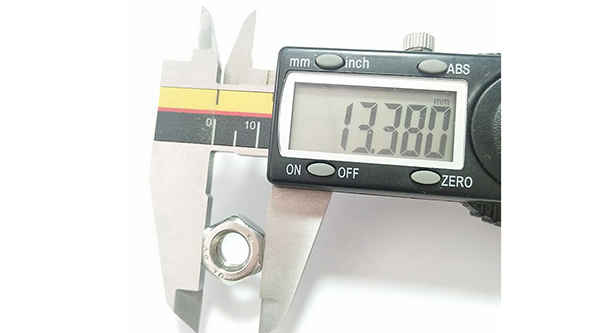What is the tolerance range of precision screws?
What is the tolerance range of precision screws?
Service Hotline
+86760-8787 8587We have more than ten years of production experience in the screw industry. The main products are: 4.8 grade galvanized screws, round head socket head cap bolts, 1mm tooth nuts, embedded connectors, flat gaskets used on both sides, GBT13 screws, blackened inch screws , Metal self-locking lock nuts, PA6 screws, hex screws and bolts, factory-made bolts, ingot nuts, aircraft frame nuts, aluminum sealing rings, British and American bolts and other fasteners, due to different product materials and specifications, Prices also vary, please contact us if necessary.


Stud bolts generally need to be surface treated. There are many types of bolt surface treatments. Generally, electroplating, blackening, oxidation, phosphating, and electroless zinc flake coating are commonly used. However, electroplated fasteners account for a large proportion of the actual use of fasteners. Especially in automobiles, tractors, home appliances, instrumentation, aerospace, communications and other industries and fields are more widely used. However, for threaded fasteners, not only a certain anti-corrosion capability is required in use, but also the interchangeability of threads must be ensured, which can also be called screwability here. In order to meet the dual-use performance of anti-corrosion and interchangeability required by threaded fasteners in use, it is very necessary to formulate special plating standards. GB/T5267.1-2002 [Threaded fastener electroplating layer] standard is one of the national standards fastener surface treatment series of standards, the standard includes: GB/T5267.1-2002 [fastener electroplating layer]; GB/T5267.2-2002 [Electrolytic zinc flake coating for fasteners] Two standards. This standard is equivalent to the international standard ISO4042; 1999 [Threaded fastener electroplating layer]. This standard replaces the GB/T5267-1985 [Threaded Fastener Electroplating Coating] standard.

The purpose of Guangdong Yueluo Hardware Industry Co., Ltd. is to overcome the deficiencies in the existing technology and provide a square nut fastener for cable tray installation, which has a simple and reasonable structure, and is extremely convenient and flexible to operate; it does not occupy C-shaped steel after installation. The space at the bottom increases the diversity of installation, and can be applied to square nuts of different thicknesses, and the installation is firm


Screw (English a screw) refers to the parts used in construction machinery. It is a kind of threaded parts with sharp ends such as nails, small cylindrical or conical metal rods, with grooved or dimpled heads, and used alone. . The detection of the screw should start from the wire of the screw. The quality of the precision screw is directly related to the wire that produces the screw. A good screw wire will open the screws more beautifully. What screw head burst, what thread is bad. Good screw wires generally do not find this situation.

The pressure riveting nut is divided into free-cutting steel pressure riveting nut S type, stainless steel pressure riveting nut type CLS, stainless iron pressure riveting nut SP type and copper and aluminum pressure riveting nut CLA type, which should be used in different environments. . Sizes are usually from M2 to M12. There is no unified national standard for rivet nuts, and they are often used in chassis cabinets and sheet metal industries. S series, CLS series, SP series pressure riveting nuts use the internal thread as a simple method to install in precision sheet metal products, and use small and precise nuts for reliable fixing to completely process the side plate of the sheet metal. The nut is inserted into the hole of the metal plate, and the inlay strengthening function is completed by pressure. Application advantages 1. The back of the plate remains completely flat; 2. Small size and precision, suitable for all electronic or precision equipment; 3. High torque resistance; 4. Easy equipment, simple riveting; 5. Standardized serialization can meet various design requirements .

The above content is uploaded by Yueluo or the Internet. If there is any copyright issue, please contact [email protected].

What is the tolerance range of precision screws?

How to choose the right stainless steel screw manufacturer?

Why is there an R angle under the head of the hexagon head s...

We have more than ten years of production experience in the ...

We have more than ten years of experience in the production ...

We have more than ten years of experience in the production ...

We have more than ten years of experience in screw industry ...